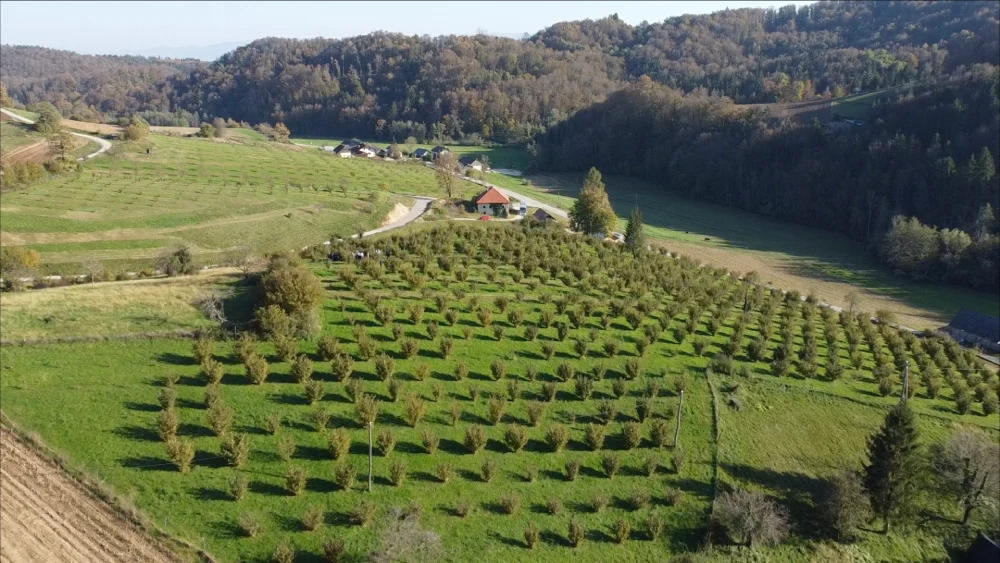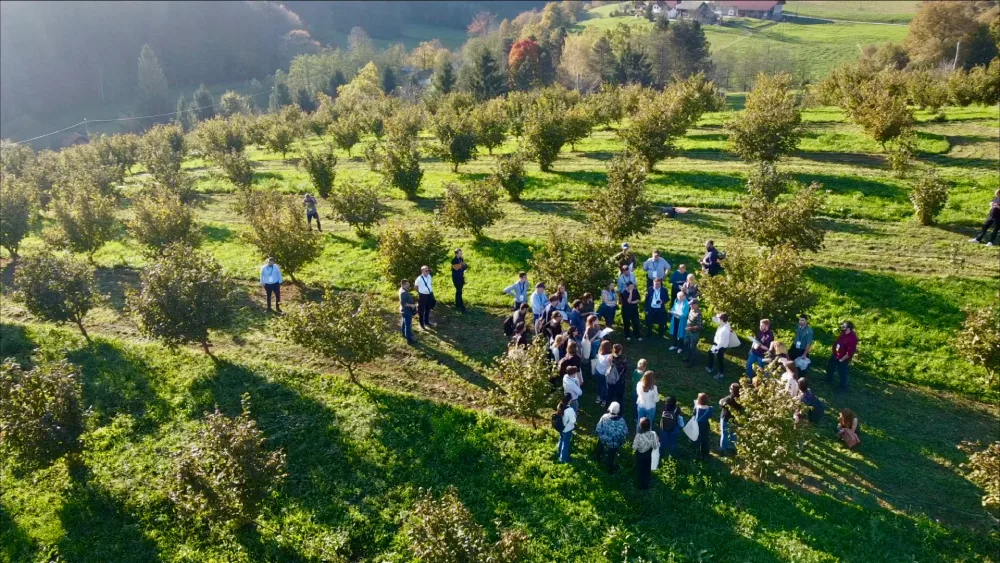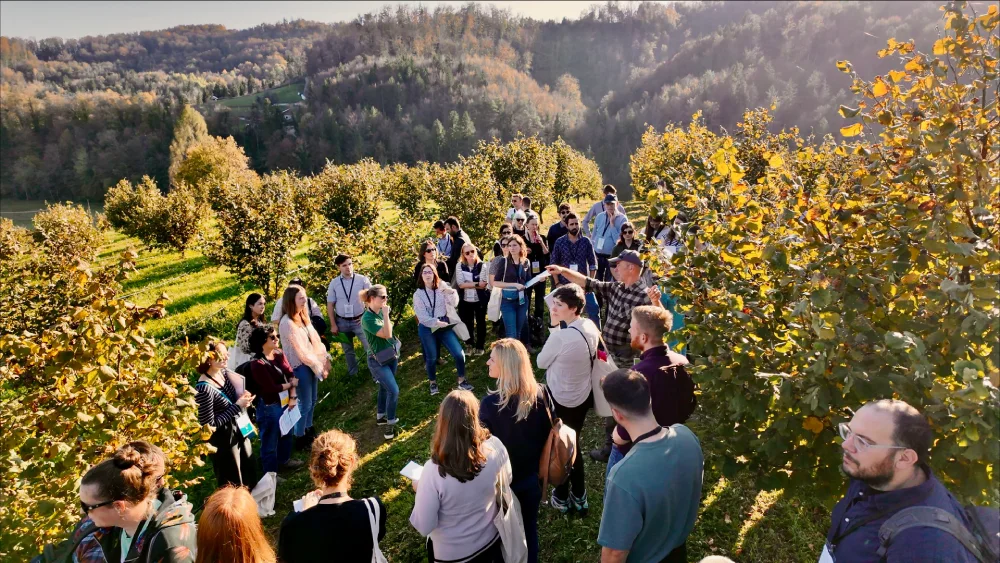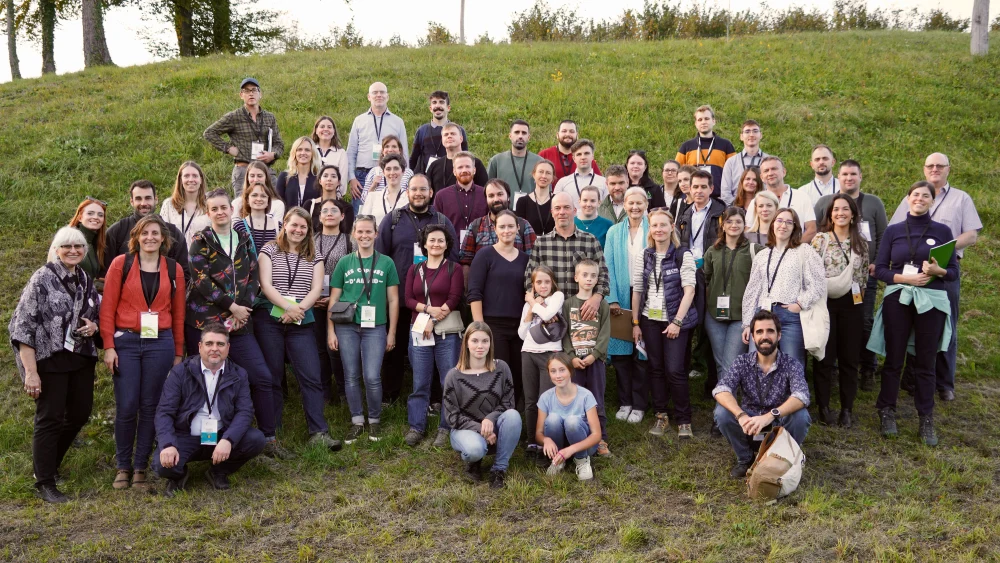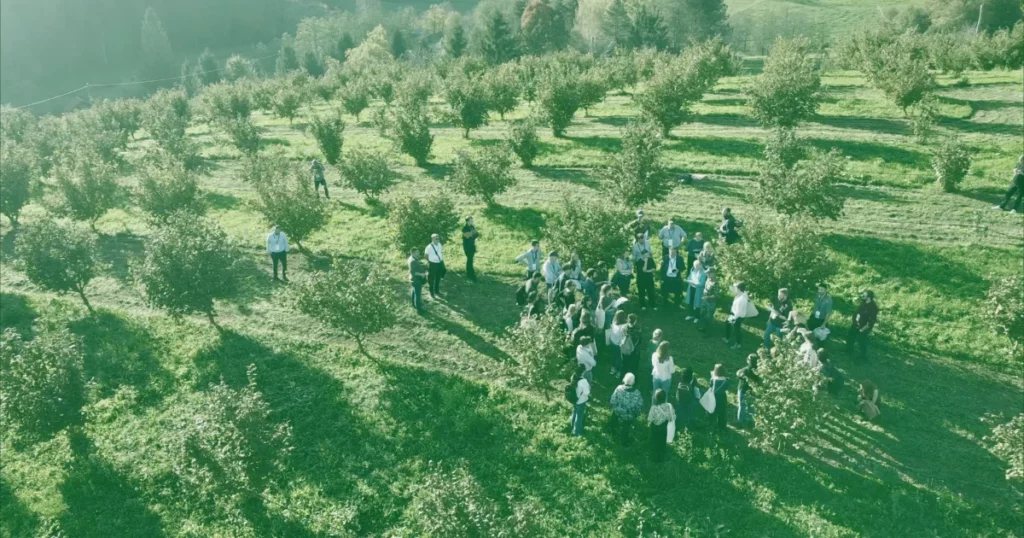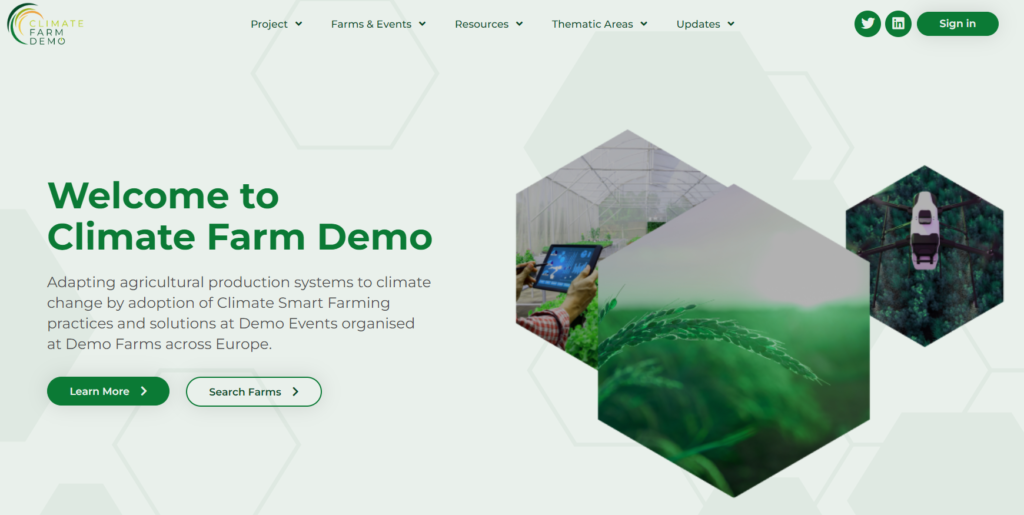This visit provided a unique perspective on the challenges and opportunities within organic farming amidst climate change, spotlighting innovative practices and fostering valuable knowledge exchange. As a gesture of gratitude for their warm hospitality, participants brought small gifts from across Europe to thank the farmers for opening their doors and sharing their experiences.
Founded in 2004 by Klemen Vodnjov, the nine-hectare farm has transformed from a once overgrown expanse into a thriving organic enterprise. Today, it produces hazelnuts, walnuts, and a diverse range of fruits such as apples, plums, and persimmons. With over 100 fruit tree varieties, the farm exemplifies dedication to biodiversity and high-value nut production.
However, Eco Farm Vodnjov has not been immune to the growing impacts of climate change. Increasing droughts, frosts, and hail storms over recent years have led to significant yield losses, with some seasons experiencing up to 50% reductions. In response, Klemen has adopted a series of climate-smart practices through the Climate Farm Demo project. These include planting climate-resilient crop varieties, installing irrigation systems, utilizing photovoltaic panels for renewable energy, and maintaining a negative carbon balance of -3.40 tonnes CO2 equivalent per hectare annually, primarily through perennial nut crops.
The farm visit underscored the realities of climate challenges, with on-site examples of pest damage and hail impacts on orchards providing a tangible connection to the issues discussed. Attendees also explored how Eco Farm Vodnjov measures greenhouse gas emissions, benchmarking at 834 kg CO2 equivalent per hectare per year. Suggestions for future demonstrations included incorporating detailed benchmarks for emissions and yields to enhance understanding and impact.
Knowledge exchange proved invaluable during the visit, as participants shared ideas for integrating further climate-smart solutions. Recommendations included exploring electric machinery to reduce fuel use and raising awareness of reward mechanisms for sustainable practices—a resource Klemen was not fully aware of.
Beyond agricultural innovation, Eco Farm Vodnjov has established itself as a vibrant community hub. The farm offers workshops on traditional crafts like soap-making and hand-painting, agritourism experiences, and an educational fruit species theme park promoting biodiversity. Klemen’s ability to market directly to local consumers showcases a sustainable, community-oriented business model.
Looking ahead, Klemen envisions modernizing his farm machinery, expanding cultivation, and enhancing crop monitoring to optimize yields. Participants emphasized the need for Climate Farm Advisors to strengthen facilitation skills, enrich demonstration content, and include cost-benefit analyses of climate-smart measures to maximize the impact of future events.
Eco Farm Vodnjov stands as a beacon of resilience and innovation in organic farming, embodying the spirit of adaptability needed to tackle the pressing challenges of climate change. Sincere gratitude goes to Klemen and his team for their warm hospitality and inspiring contributions to sustainable agriculture.
A big thank you to Eco Farm Vodnjov for hosting us and for being an integral part of the Climate Farm Demo network of farms. We’re grateful for your commitment to sustainability and your valuable contributions to the project.
